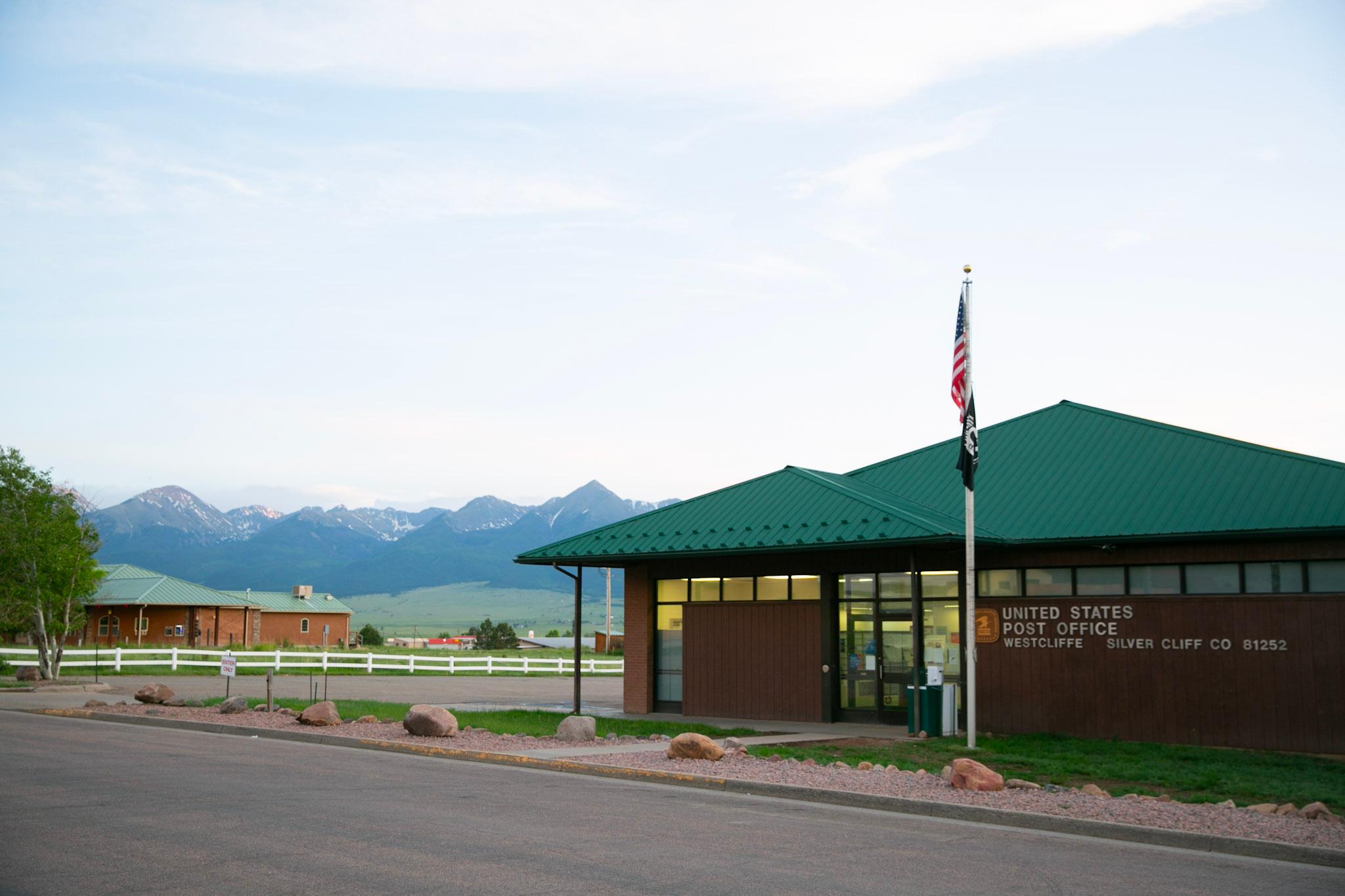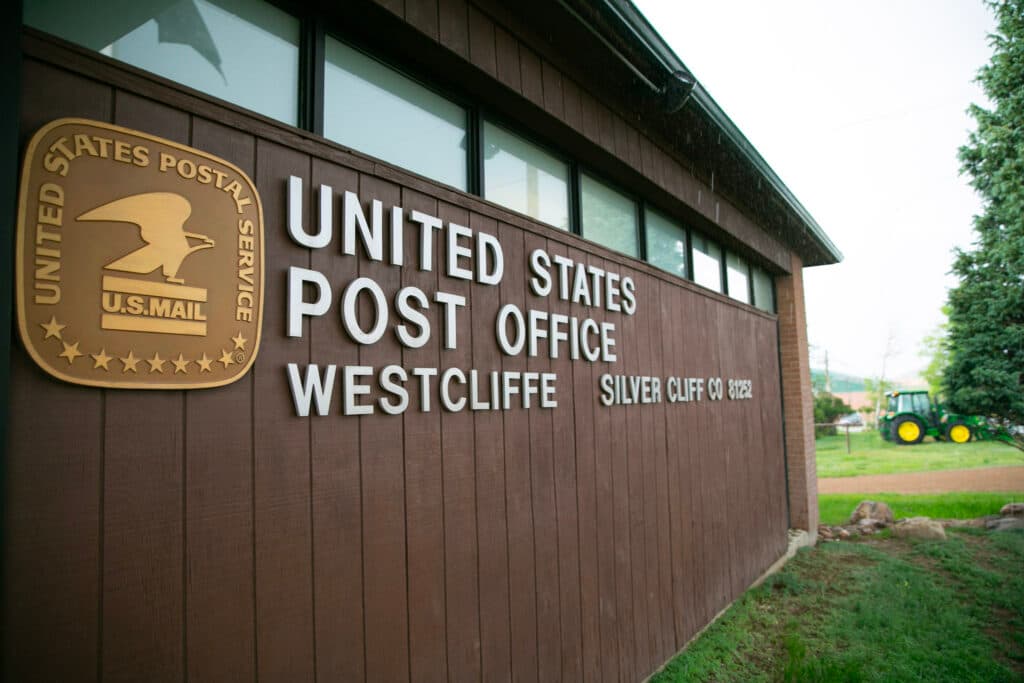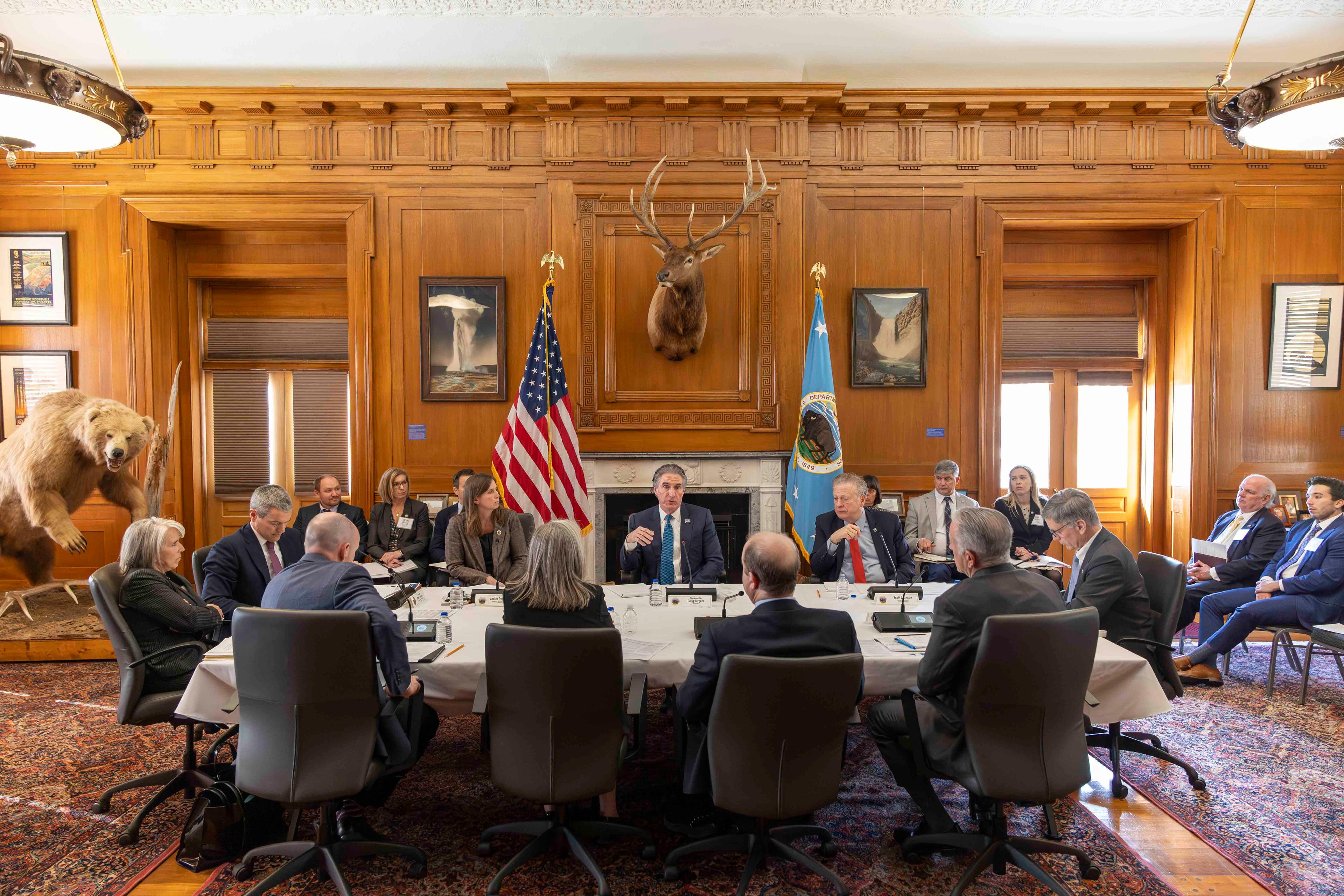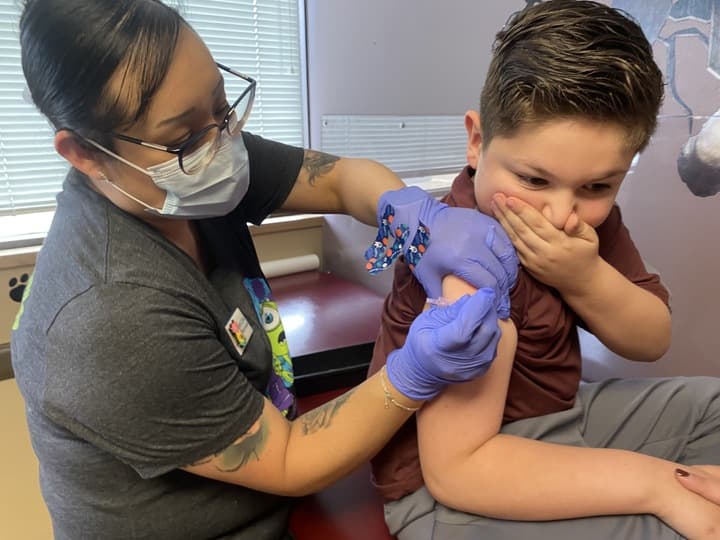
81249.
That used to be the ZIP code for Silver Cliff, Colorado, before the U.S. Postal Service removed it from use and forced the town to use neighboring Westcliffe’s ZIP code.
“We lost our identity,” said Silver Cliff Mayor Buck Wenzel. “We just want our number back, 81249.”
Wenzel’s been working for years with a rotating cast of congress members to get the ZIP code back, starting with Sen. Michael Bennet and former Rep. Scott Tipton, followed by Tipton’s successor, Rep. Lauren Boebert, when she represented the area, and now, after redistricting, with Rep. Brittany Pettersen. The lawmakers may have changed, but the number has not.
An act of Congress may finally help.
Earlier this year, Boebert reintroduced a bill to create unique ZIP codes for Silver Cliff and 14 other Colorado communities, in addition to almost 60 more localities across the country. It passed the House by a vote of 278-121 on Monday, with all members of the Colorado delegation in favor.
The current bill is an expansion from 51 new ZIP codes she proposed in the previous Congress. And she’s hopeful the size will help; she’s found out the hard way that trying to create new codes one at a time doesn’t work.
“Individual members will file this (kind of) legislation Congress after Congress. And unfortunately, there's just not a lot of momentum behind them,” Boebert explained to CPR News after the vote. One of her first bills as a freshman would have set up a unique ZIP code for Silver Cliff. After it stalled out, Boebert decided to package several of these bills together. “I said, ‘let's expand this and really get some momentum here.’ And we were able to see the success of that today.”
Part of that success was seeing all the names on the voting board in the House chamber with a Y next to them.
“I am kind of happy that we got to see actual names go to this bill and you can see where people stand on it,” she said.
Boebert noted that there’s bipartisan frustration with the U.S. Postal Service, especially when it comes to getting a new ZIP code. USPS has the power to create new codes on its own, but if a community applies and gets rejected, they are not allowed to reapply for 10 years.
“So hopefully this act of Congress will show USPS that we are serious about them serving the American public,” she said.

A spokesman for the U.S. Postal Service said changing ZIP codes will degrade service and potentially cause delivery disruptions.
“Legislated ZIP Code changes are almost never related to improving or considering mail delivery, are often not considered or understood by the broader community that is impacted, but instead are inspired by third-party reliance on ZIP Codes, such as for tax collection, insurance rates, community identity, or other non-mail considerations,” said the USPS spokesperson for Colorado and Wyoming.
The spokesperson added ZIP code changes would lead to altering routes and facilities for letter carriers and add “significant, ongoing operational costs” for the USPS, which has not been breaking even.
But for backers of the effort, the change is worth it.
“This legislation is not just about postal efficiency. It is about fairness, public safety, community identity, and ensuring that every town and city in America has the tools it needs to thrive,” Boebert said during the floor debate on the bill.
Besides Silver Cliff, the other Colorado communities that could get a new ZIP code through Congress are Castle Pines, Lone Tree, Frederick, Centennial, Cherry Hills Village, Greenwood Village, Highlands Ranch, Keystone, Mountain Village, Mt. Crested Butte, Severance, Sterling Ranch, Superior, and Telluride.
Why unique ZIP codes matter to local leaders
It’s not just identity, as Silver Cliff’s Mayor Wenzel explained. He said his community has mail delivery issues because Silver Cliff and Westcliffe have similar street names.
And while, when the ZIP code system was created in the 1960s, it was strictly for mail delivery, he said it’s unfair to ignore the purposes it serves now.
Those five digits could impact insurance rates and are used in data analysis from public health to crime rates. And for a lot of localities, ZIP codes determine where sales tax from online purchases can go. So sharing a code with a neighboring community can also mean sharing taxes. And if you’re the smaller community in that ZIP code, not always getting the full share of what you’re owed.
“Over a period of 30 years, we’ve lost hundreds of thousands of dollars in income from online, out-of-state and out-of-county sales tax,” said Wenzel.
That’s money Silver Cliff couldn’t use to help with roads, parks, a senior center and other services because the town doesn’t have its own ZIP code.
A unique ZIP code can also help prevent confusion for businesses and consumers, said Lone Tree Mayor Marissa Harmon.
Like Silver Cliff, Lone Tree also had its request for a unique ZIP code denied by the USPS. Currently, the city is divided among three ZIP codes shared with other nearby municipalities.

A local coffee shop, Monk & Mongoose, Harmon recalled, wanted to and did open a second location in Lone Tree. But when the owner put the ZIP code of the new location into Google Maps, the site came up as being in Parker. The owner called Harmon worried that she signed a lease there and not in Lone Tree.
“If you don’t put in those last four digits [after the ZIP code], it does show you that you are in the town of Parker. The [owner] wanted to have two locations in the city of Lone Tree,” Harmon recalled. “There’s a part of business and community pride that I think is really important in eliminating the community confusion and having multiple ZIP codes that pull up as different cities.”
Just south of Lone Tree, Castle Pine Mayor Tracy Engerman said her city of 16,500 has been trying to get a ZIP code since 2009, just after it was established. USPS rejected the application and then when the town reapplied, rejected it again because the full decade time out hadn’t passed.
She, too, pointed to sales tax remittance issues as a big driver of the effort.
“Oftentimes our online sales and brick and mortar stores possibly remit to Castle Rock or Douglas (County) because the ZIP code says Castle Rock as the main primary municipality,” she explained. “So, having our ZIP code that we’re not sharing would really help us make sure that sales tax then comes back to Castle Pines.”
Engerman brought up another common issue with shared ZIP codes: they can impact emergency response times because “the confusion of whether (the location is) in Castle Rock or Parker or in Castle Pines because of the ZIP code.”
All three local leaders expressed frustration with the Postal Service’s ZIP code process.
“We’ve come a long way with technology and how we actually utilize ZIP codes,” Engerman said. “It has to be recognized that there’s more use than just for mail delivery. And it would be great if we had a better way to have interaction with the Postal Service to make this work besides having to go to Congress to get this to happen.”
Local leaders are grateful to Boebert and the others for pushing the issue in the House, but they understand hurdles remain.
Why this isn’t a congressional slam dunk
GOP Rep. Jeff Hurd, who has a few communities in his district included in the bill, is hopeful about its chances. “It’s bipartisan. It’s common sense. And I’m optimistic that we’ll get it through the Senate this time,” he said.
Besides Boebert’s bill, Florida GOP Rep. Mario Diaz-Balart also had a unique ZIP code bill pass. It had 14 communities listed, including two in Colorado: Silver Cliff and Castle Pines.
“It’s interesting because the Postal Service is very difficult to deal with. They’re not responsive, which is why we’re forced to do these bills. We shouldn’t have to,” he said. He’s gotten a ZIP code bill through the House three times.
When asked why they haven’t gotten through the Senate? Diaz-Balart said, “that’s a question for the Senate.”
His current bill has a Senate companion measure, while Boebert’s does not. She said she is talking with Senators about taking it on.
Boebert’s bill is also not without some problems. Last congress, it passed by voice vote. This time, some Democrats voted no because it doesn’t meet all the requirements for ZIP code bills established by the Oversight committee. All the localities included must support the idea and must have had their own requests been rejected by the USPS; and the locality’s representative must be a cosponsor of the bill.
“Bigger bills have bigger problems,” joked Pettersen, who has co-sponsored both Boebert and Diaz-Balart’s bills, in the hopes of giving Silver Cliff two chances of getting its old ZIP code back.
Pettersen does think the Senate might make changes to Boebert’s bill given the requirements, but adds including more localities “does bring in a wider net of folks who are supporting it.”
Democratic Rep. Emilia Sykes of Ohio has a community on Boebert’s bill and is a co-sponsor. As she said during the floor debate urging members to vote for the bill, “I understand the procedural challenges that have plagued this bill, but I do ask that the members of this body not punish my constituents for those committee issues.”
Because chances are those constituents don’t care about committee rules, they just want their town to have its own ZIP code.







